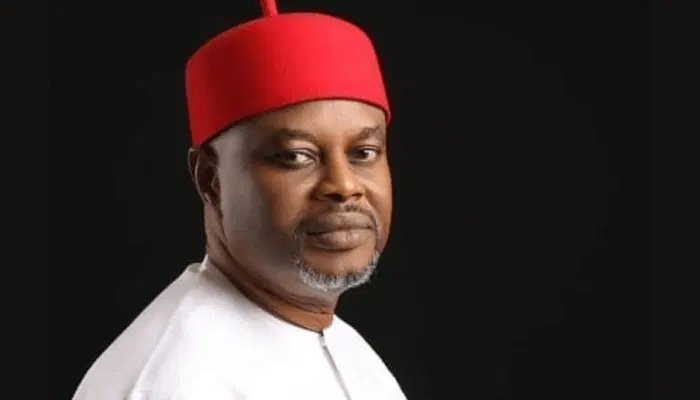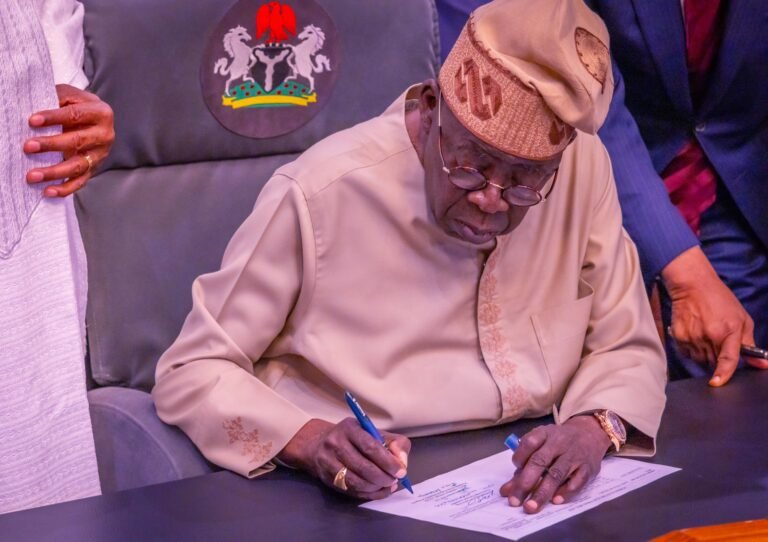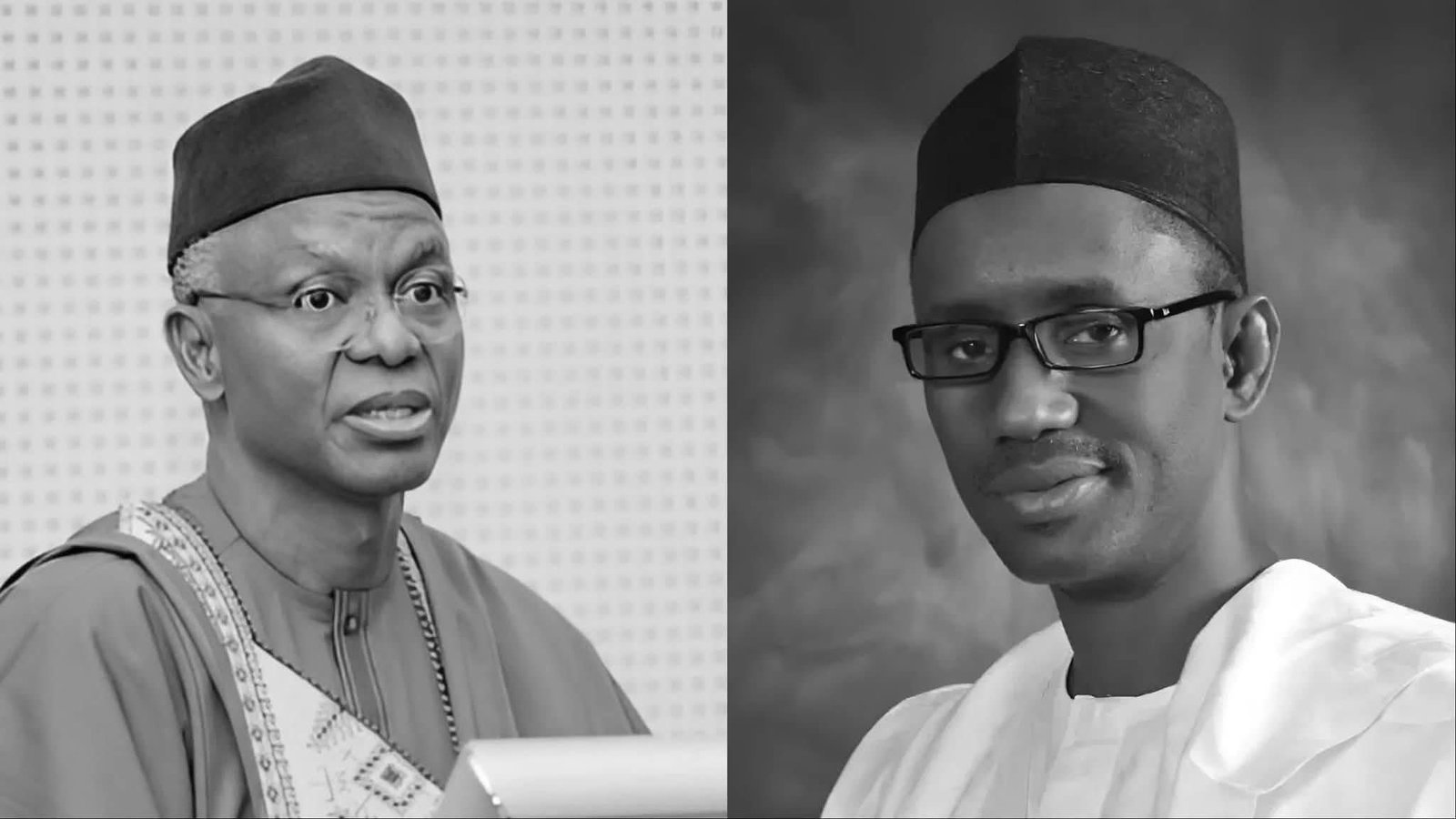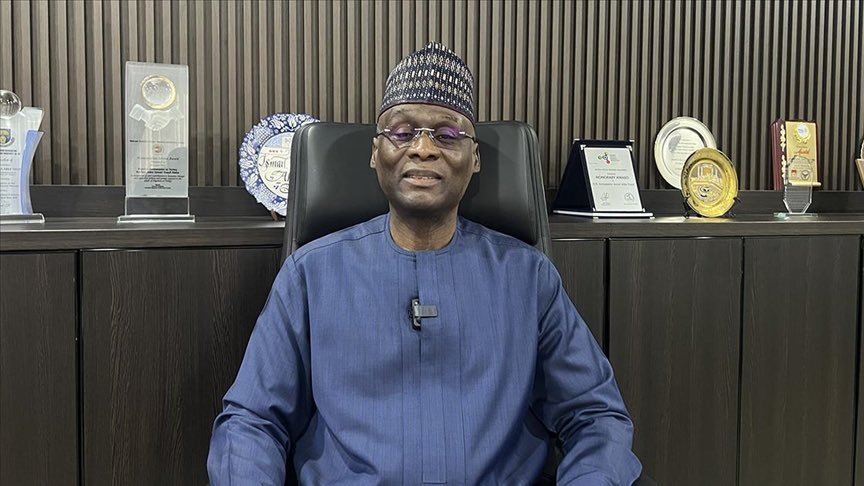In a stunning turn of events, Geoffrey Uche Nnaji, Nigeria’s Minister of Innovation, Science, and Technology, has formally resigned amid mounting certificate forgery allegations. His departure raises fresh questions about vetting processes, institutional integrity, and accountability in public office.
From Appointment to Accusation: The Background
President Bola Ahmed Tinubu appointed Nnaji to his ministerial post in August 2023. Almost from the outset, critics questioned the authenticity of his academic credentials, particularly a Bachelor of Science degree and his NYSC certificate.
On October 7, 2025, Nnaji’s resignation was confirmed by the President’s Special Adviser on Information and Strategy, Bayo Onanuga. In his resignation letter, Nnaji claimed he had been a target of blackmail by political opponents. President Tinubu accepted the resignation and thanked him for his service.
Also Read:
- Working Lives: The Affidavit Agent Who Forges Marriage Certificates
- BUA Cement Warns Shareholders: Validate Old Share Certificates, Unclaimed Dividends
- EFCC Orders Arrest of Former Staff Involved in Lege Miami Matchmaking Programme
- Arbiterz Jobs: African Development Bank Group, Palladium, Mastercard, Jumia
The Forgery Allegations: What We Know
University Disowns the Degree
The University of Nigeria, Nsukka (UNN) publicly disowned the degree certificate being paraded by Nnaji, stating that while he was admitted in 1981, there is no record that he graduated or was issued the certificate in July 1985 as claimed. The university’s vice-chancellor confirmed that their archival records have no evidence of his course completion.
Furthermore, in legal documents, Nnaji reportedly admitted that he had never collected the certificate from UNN.
Forged Degree and NYSC Documents
An investigative report presented evidence suggesting that both the degree and NYSC discharge certificate submitted to the Senate and presidential office were not genuine. The investigation traced internal university records, transcript requests, and correspondence showing discrepancies in Nnaji’s academic timeline and status.
In response, Nnaji’s spokesperson, Robert Ngwu, accused the media of accepting bribes (allegedly N100 million from the Enugu State Government) to publish the forgery narrative. The Enugu government later denied any involvement in such payments.
President Tinubu’s Political Efficiency
The resignation of Uche Nnaji marks the second ministerial exit from President Bola Tinubu’s cabinet since its inauguration in August 2023. It reinforces an emerging pattern of political efficiency in Tinubu’s administration — an ability to move swiftly when scandals arise and to prevent controversies from becoming lasting political liabilities.
This does not necessarily suggest that President Tinubu is less tolerant of corruption or impropriety than previous administrations. Rather, he demonstrates a more disciplined political instinct: when a controversy breaks out, he acts quickly to remove the burden before it begins to erode the government’s image or distract from its policy agenda.
It is a striking contrast to the Goodluck Jonathan era, when ministers and political appointees accused of serious misconduct often remained in office for months — even years — while official investigations dragged on. That reluctance to act decisively allowed scandals to accumulate into heavy political baggage, undermining the credibility of the government and contributing to its eventual electoral downfall in 2015.
Tinubu’s method is notably different. By swiftly accepting resignations and closing ranks, he signals control and decisiveness. The approach is less about moral judgement and more about political hygiene — a calculated move to isolate a problem, remove it, and hence keep politics, if not the machinery of government, focused.
Nnaji’s resignation, therefore, is as much about damage containment as it is about accountability. It communicates to supporters and citizens that the administration will not allow individual missteps to dominate its narrative. In a political environment where perception often shapes legitimacy, Tinubu’s efficiency in crisis management is proving to be a key strategic asset.
However, efficiency alone is not reform. The speed with which scandals are handled must be followed by institutional correction — credible vetting procedures, verification of academic and professional credentials, and stronger internal oversight mechanisms. Without this structural follow-through, rapid resignations may look like image management rather than systemic integrity.
Civil society groups have welcomed Nnaji’s exit but insist that it should trigger a permanent framework for verifying public officers’ qualifications. Organisations such as the Transparency and Accountability Network and the Education Rights Movement argue that public accountability cannot depend solely on presidential judgement.
The People’s Democratic Party (PDP) has meanwhile attempted to leverage the controversy, calling for a comprehensive audit of all ministerial appointees’ records and accusing the government of double standards. Yet, politically, Tinubu has neutralised the fallout — the scandal has been contained before it could mature into an opposition weapon.
The broader implication is that Tinubu’s presidency has evolved a governance reflex that prizes control and speed over indulgence or denial. The key test ahead is whether this instinct for crisis management will be translated into institutional reform — turning short-term political efficiency into long-term accountability.
Looking Ahead: Key Questions
Will Nnaji face legal consequences?
Resignation alone does not absolve a public officer from possible prosecution if forgery is proven.What happens next in the ministry?
A successor must be appointed, and the process of selection will test the government’s commitment to due diligence.Will systemic vetting reforms follow?
The incident could become a catalyst for a new standard of background checks for federal appointees.How will public trust be affected?
While quick action may mitigate immediate damage, recurring scandals could still erode faith in the administration’s reform agenda.


























